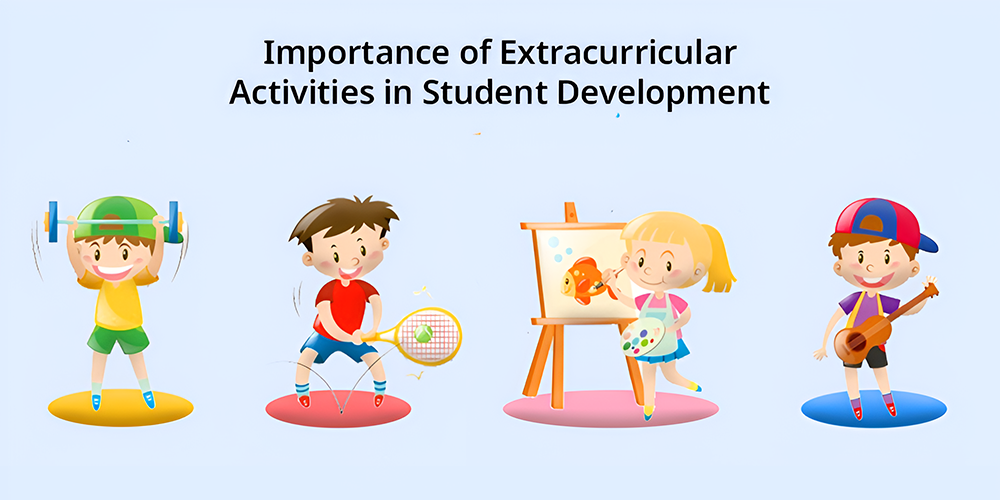
All the more, extracurricular activities are taken for a well rounded experience.
No matter the activity – whether it’s the importance of playing sports in team , music, drama, volunteering or a student club – these are all activities that contribute greatly to students growing not only academically, but also socially, emotionally and physically.
This blog will take you through the reasons why students should devote their time to extracurricular activities and these activities’ benefits, from learning time management skills as it is important for students , to mental and emotional well-being to physical health to leadership skills and more.
What are the Extracurricular Activities?
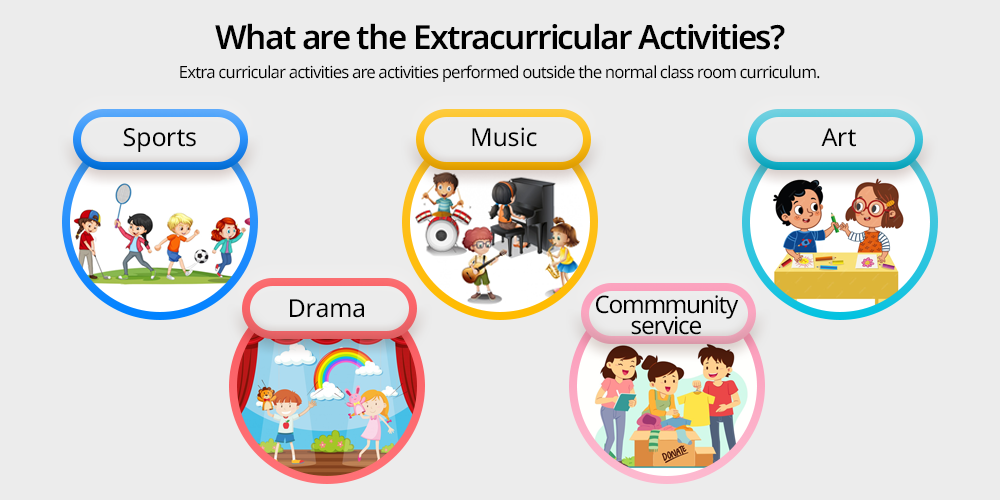
Extra curricular activities are activities performed outside the normal class room curriculum.
They might be well expressed as a list of the many pursuits: sports, art, music, drama, community service, debate clubs, academic competitions, student government and so forth.
These activities are not required in the school curriculum, but instead are done as supplementary activities to the education which the students receive in the classroom.
These activities encourage students to explore their interests, talents and passion, and help them develop in a personal way.
Importance of Extracurricular Activities
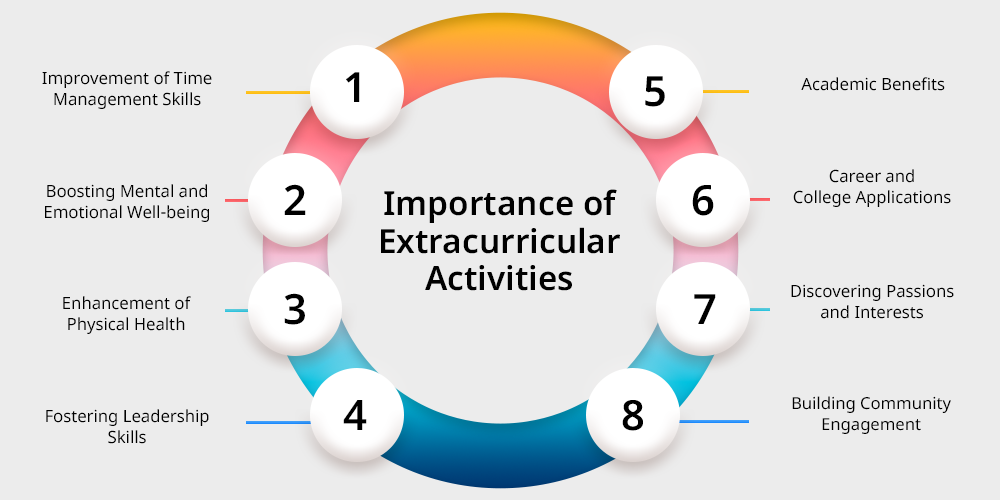
A good education includes extracurricular activities and they can really help the development of students.
There are many fun learning time activities at home that students find valuable in building life skills and experiences to help understand, even if not solve, issues they are brought to them inside and out of the classroom.
Let’s dive into some of the key benefits of extracurricular activities:
1. Improvement of Time Management Skills

One of the most important things you learn from extracurricular activities is how to manage your time.
Most student’s are learning how to balance a variety of priorities with academics and extracurricular commitments.
No matter how students tackle homework assignments to prepare for a sport, or plan practice schedules alongside group meetings, students learn to structure time.
As they move from school into college and eventually their careers, however, there would be no greater smooth transition than learning these skills early.
2. Boosting Mental and Emotional Well-being
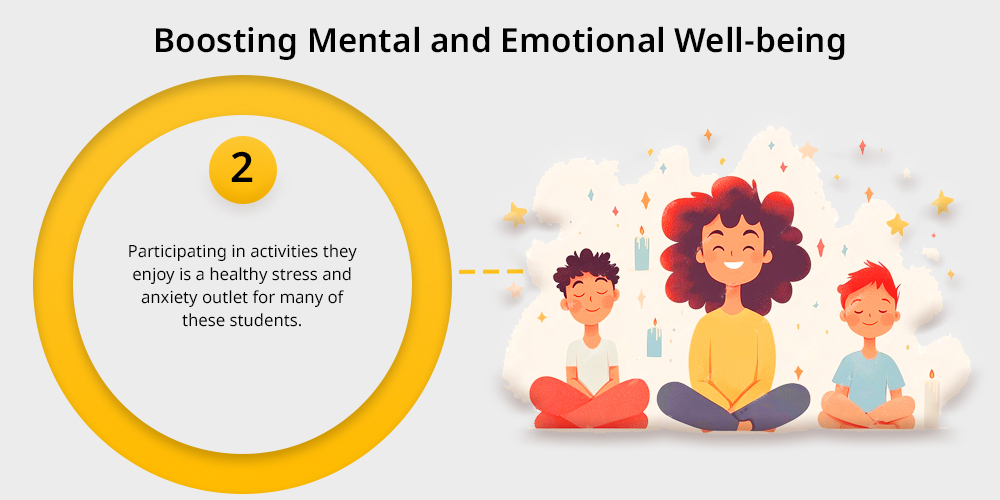
Extracurricular activities has a very large effect on mental and emotional well being. Participating in activities they enjoy is a healthy stress and anxiety outlet for many of these students.
Sports are physical activities that can release the endorphins and make you feel better and cut down the stress levels.
Being in a group or a team makes you feel like you belong and if you’re getting enough support so you don’t feel lonely or isolated.
In addition, these activities also help teach students to stand up to wins and loses, successes and setbacks.
3. Enhancement of Physical Health
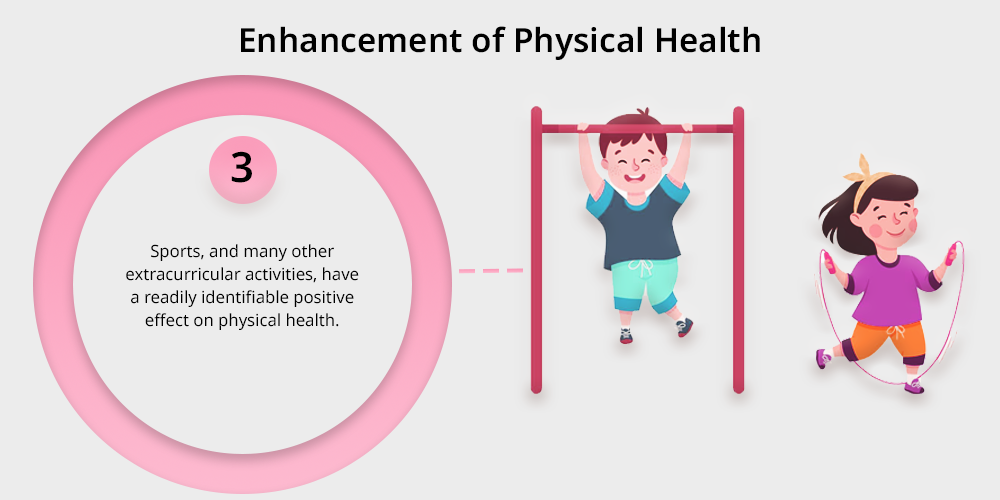
Sports, and many other extracurricular activities, have a readily identifiable positive effect on physical health.
Through regular partake in physical activities like swimming, basketball, tennis or running, students keep their body active, get strong, and improve health of both cardiovascular and cardiorespiratory system.
Also Read: How can Students Cope with Study Stress?
These activities also help you develop some motor skills, coordination, and overall fitness.
In an age where more and more of our students live sedentary lives and spend more and more time in front of screens, extracurricular activities are a vital means through which students can participate in physical activities.
Exercise has lots of other good for you, and you get better concentration, you get better sleep, you get less stress.
4. Fostering Leadership Skills
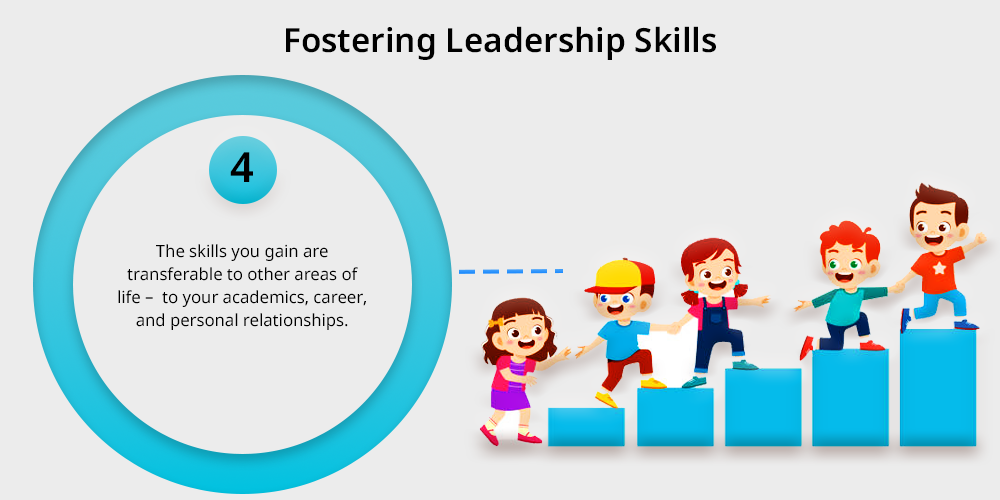
Students have a lot of opportunities for leadership roles outside of the smart classroom whether they lead as a student government member, in a role as captain of a sports team, or by organizing events or initiatives.
However, the skills you gain are transferable to other areas of life – to your academics, career, and personal relationships.
In addition to making students responsible for a whole team or group, it also makes them understand the value of collaboration, delegation and making others do what you need.
Doing extracurricular activities gives a good opportunity to collect leadership experience which continues to stay with the student and has a lasting impact on what they will do in the future and the success they have in different avenues.
5. Academic Benefits
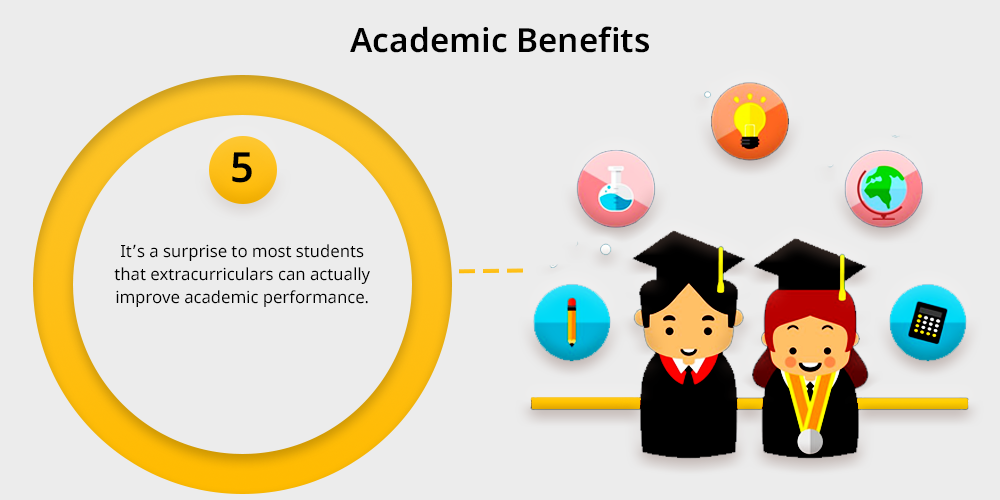
It’s a surprise to most students that extracurriculars can actually improve academic performance.
Organizational skills and the ability to manage the discipline and time required for balancing extracurriculars and academics help students remain organized and focused.
This is also because these activities can encourage students’ learning and bear cognitive development ; basing on creativity and critical thinking.
In fact, extracurricular involvement provides self confidence and a growth mindset that inspires students to try and try again, to challenge themselves and stretch themselves academically given the chance, and to work at difficult tasks with a good attitude.
6. Career and College Applications
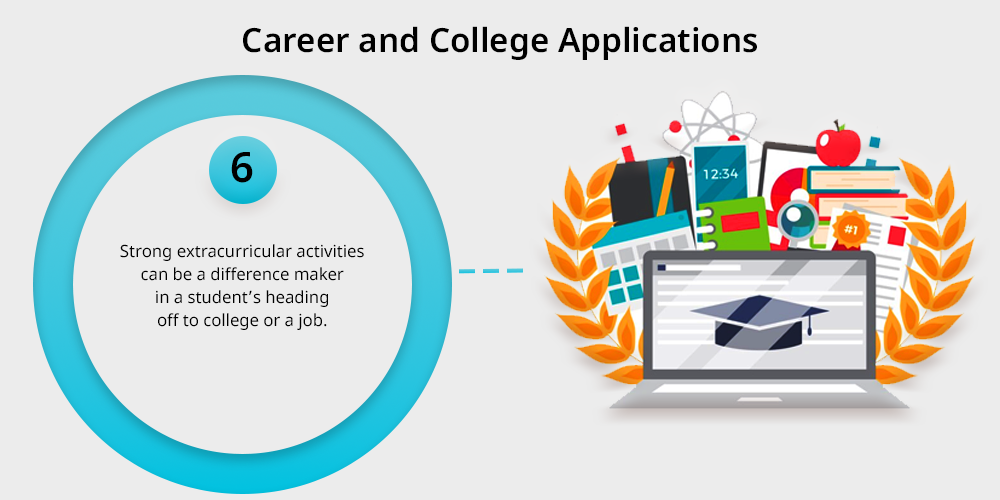
Strong extracurricular activities can be a difference maker in a student’s heading off to college or a job. Proving commitment to activities outside of the classroom is what admissions officers and hiring managers look for.
Participating in leadership roles, community service, or specialized skills, proves that this student is an initiative person, responsible, and can manage their time well.
A major part of your application is your extracurricular involvement if you are a student applying to college or scholarship.
When you are applying for internships or a job, employers are looking for people with good soft skills: the ability to work in a team, to lead, to communicate, and often these skills are developed in extracurricular activities.
7. Discovering Passions and Interests
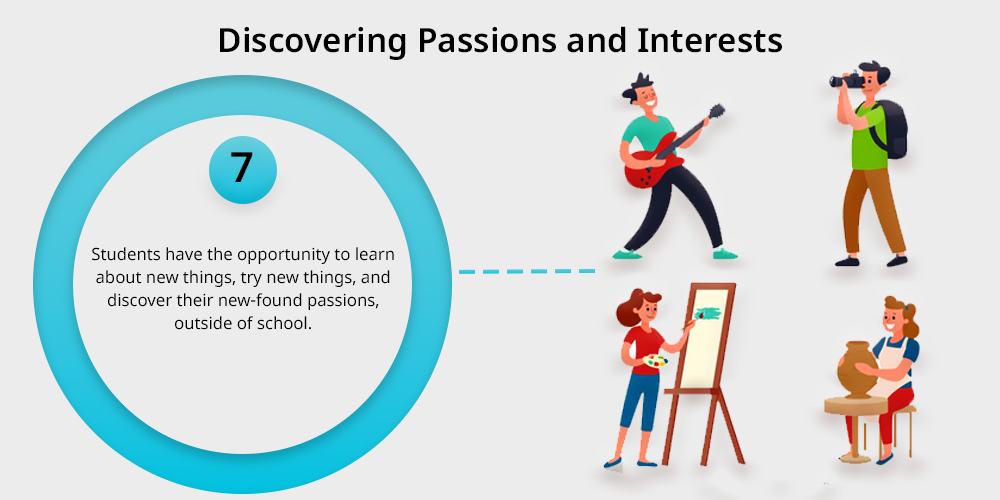
Students have the opportunity to learn about new things, try new things, and discover their new-found passions, outside of school.
Activities like a student joining an expression club or robotics club and even one involved in a community service project can wake up a student that might have never thought of an area before.
Activities help students equate their ability differences to realizations of learning and lead them to reexamine their chosen careers.
Also Read: Benefits of Co-Curricular Activities for Students
8. Building Community Engagement
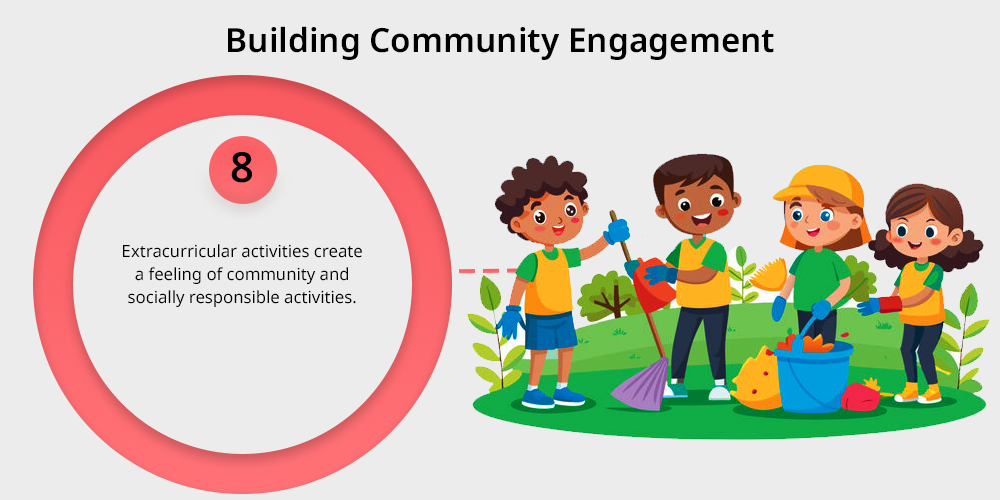
Extracurricular activities create a feeling of community and socially responsible activities.
A lot of activities, those involving volunteering and charity work and a bit of social causes enable students to get involved in their local or even global community.
Volunteering provides students with insight into social issues, as well as a lesson about how they should give back.
Community focused extracurriculars help bond with other people, listen to different people’s stories and understand other cultures and cultures altogether.
In addition, these are ways for students to establish long relationship and have meaning contribution with their community.
Also Read: Social-Emotional Learning
Conclusion
There are many benefits that extra curricular activities make to the overall development of students.
These activities help students develop into well rounded individuals by helping them to: improve their emotional well being, enhance their time management skills , become more interesting leaders, and feel better about their physical appearance.
Besides, they serve to make academic, career, and social benefits, and each of them is an essential part of education.
Activities outside the classroom can help students develop life long skills to be successful, find their passions and create connections that last their whole lives.
